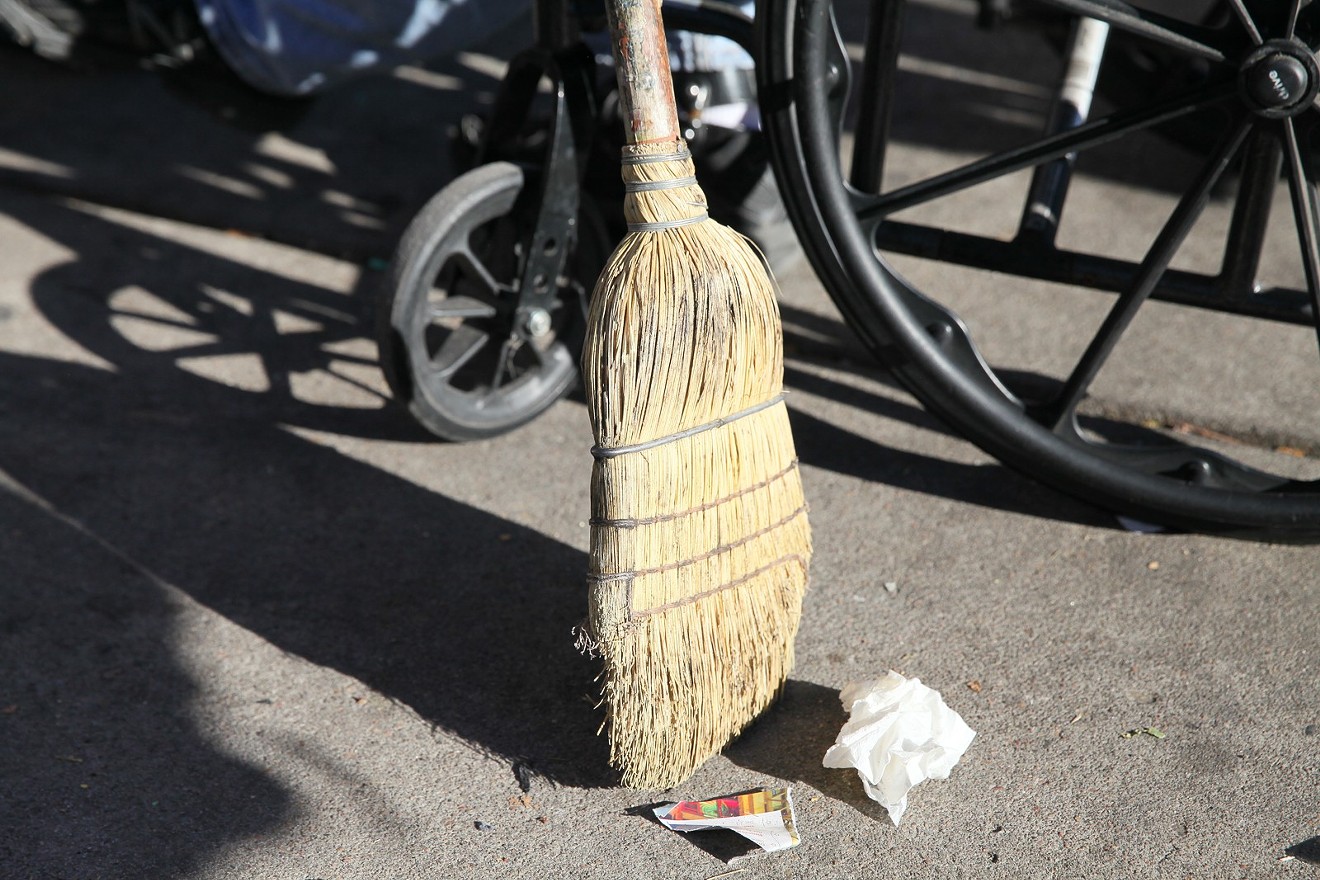In anticipation of upcoming developments, we’ve put together a reminder of what the cases are about, why they’re important, and where they stand.
Before delving into each case separately, the first thing to know is that the two are interrelated, both being represented by local civil-rights attorney Jason Flores-Williams (whom Westword profiled in the December cover story "Ready for Action"). And because the two cases involve overlapping issues (as well as a couple of shared plaintiffs), evidence obtained by Flores-Williams and the city’s attorneys will likely show up in both trials.
Here are the ways the cases are different, and why they matter:
The case in county court: defending against the camping ban
Summary: The case in county court involves three individuals who had blankets, tents and other survival items taken from them as evidence of their violating the city’s unauthorized camping ordinance – better known as the urban-camping ban. The police issued citations to the three individuals; two of them, Randy Russell and Jerry Burton, are featured in a pair of viral videos that circulated in December showing Denver cops taking their belongings at two separate locations on November 29.
Why it matters: This case focuses on the urban-camping ban, a highly controversial ordinance that has come under increasing fire as advocates pressure city officials to offer alternative solutions. Mayor Michael Hancock has already responded to the viral videos by issuing a statement promising that survival gear won’t be taken by police when enforcing the camping ban until April 2017, but this case presents a legal challenge to the ordinance.
What’s next: This case started as three separate “not guilty” pleas by each of the defendants, but on January 12, the court granted Flores-Williams’s request for "joinder," meaning that the three defendants will be tried together.
The opening arguments in the case will be heard at 9 a.m. on February 21 at the Lindsey-Flanigan Courthouse.
The case in federal court: suing the city over its homeless sweeps
Summary: The case in federal court is a class action lawsuit filed on behalf of nine plaintiffs who allege that the City of Denver and its police department violated their constitutional rights when engaging in sweeps of homeless encampments. The case specifically centers around instances when the plaintiffs, all individuals experiencing homelessness, claim that the city trashed or confiscated their personal property – including ID documents – in violation of the Fourth Amendment’s protections against unlawful searches and seizures. The suit not only names the City of Denver as a defendant, but also various officials including Hancock and Denver Police Chief Robert White.

The Alfred A. Arraj Federal Courthouse, where the class action suit is playing out.
Photo by Brandon Marshall
What’s next: The federal case hinges on class certification: whether the nine individual plaintiffs will be considered by the court as representative of thousands of Denver homeless people. Both Flores-Williams and the city’s attorneys have already submitted their final arguments before Federal District Court Judge William Martinez. Flores-Williams tells Westword that he expects a ruling to come down sometime before mid February.
Added complications: The case is currently in its “discovery” phase, meaning that Flores-Williams and lawyers representing the city are requesting documents and evidence from each other to shore up their respective arguments.
But because the federal case involves two of the camping-ban defendants, as well as overlapping subject matter, evidence produced is likely to be used in both trials. Flores-Williams says that he and the city’s attorneys are in a skirmish over the production of documents. Specifically, the city has requested communications between Flores-Williams and Denver Homeless Out Loud, a local advocacy group to which some of Flores-Williams’s clients belong.
In one request, the city’s attorneys ask the nine homeless sweep plaintiffs for “all written communications between you and/or your representatives, including but not limited to your attorney(s) and Denver Homeless Out Loud.”
Flores-Williams claims that this is a clear violation of attorney-client privilege.
On January 15, he filed the following response to that request: “Objection. Calls for violation of work-product, attorney-client and investigative privilege(s). Denver Homeless Out Loud has a fiscal relationship with Western Regional Advocacy Project, supra, a registered nonprofit, and has served as investigators in this litigation so that all agreements and communications between Denver Homeless Out Loud and this law office are protected and subject to attorney-client privilege.”
More discovery-request battles are likely to play out behind the scenes, even as District Court Judge Martinez mulls over the crucial decision concerning class certification.













